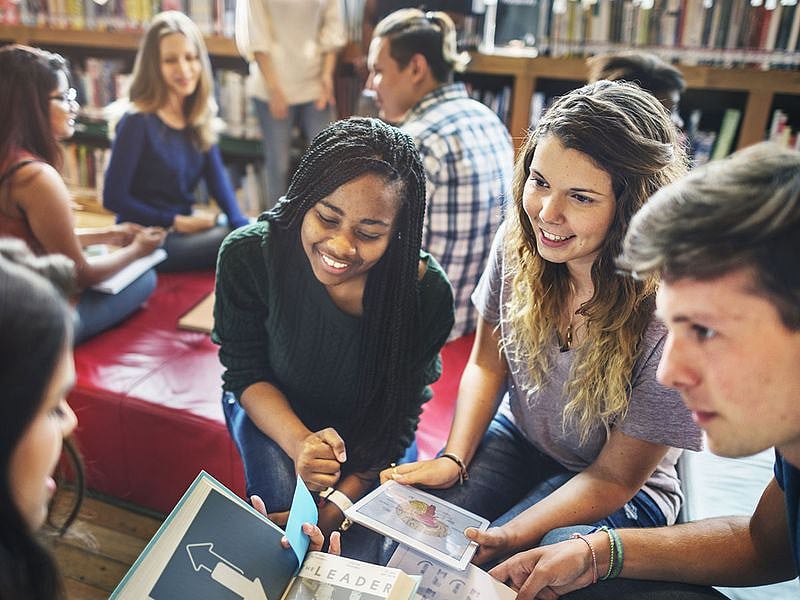From diversity to connection: Why learning is key to building social cohesion
Shared learning builds empathy, confidence and stronger communities across the UAE

Few countries are as diverse as the UAE, where most residents are expatriates. This mix of languages, cultures, and traditions is one of the nation’s greatest strengths, but it can also present challenges. In a place that has grown rapidly and brought together people from all over the world, shared spaces of learning can help turn diversity into connection.
Education – in its broadest sense – is one of the most powerful ways to bring people together. Whether in a university, a workplace, or a neighborhood community center, learning side by side builds understanding and mutual respect. It gives people a shared vocabulary, not only for communication, but also for empathy.
The UAE’s Year of Community calls on everyone who calls this country home to play a role in building connections. Learning is one of the most tangible ways to do so. It provides structure, routine, and purpose, while reminding us that progress depends on curiosity and collaboration. As the country continues to grow, social cohesion will depend as much on the strength of our relationships as on the speed of our development.
Learning together, living together
Across the UAE, a growing number of organisations are recognising the social value of learning. When people from different walks of life learn together, they begin to see one another as collaborators rather than strangers. It can be as simple as an English or Arabic class that helps colleagues communicate more easily, or a skills workshop that gives someone the confidence to take on new opportunities.
At NYU Abu Dhabi, one such initiative began more than a decade ago with a small pilot English class for campus staff. It has since evolved into a full-scale adult education programme that includes courses in Arabic, entrepreneurship, financial management, computer skills, and well-being. Faculty, staff, and contracted colleagues often volunteer as teachers, reinforcing a culture of shared learning and inclusion. The experience has shown how accessible education can build confidence, strengthen workplace culture, and create bridges across social lines.
The benefits of such programmes extend beyond individual development. When people learn in psychologically safe, inclusive environments, they feel seen, supported, and connected. Research backs this up: studies in the UK and elsewhere have found strong links between lifelong learning, mental well-being, and community engagement. Investing in education is therefore not only good for individuals but also for the collective health and resilience of society.
There is also a well-being dividend. The World Health Organisation estimates that depression and anxiety cost the global economy about 12 billion working days and $1 trillion in lost productivity each year. This reinforces a simple truth: learning environments that foster community, inclusion, and mental well-being are essential to healthy, resilient societies. Supporting learning is therefore also a form of preventative health – one that strengthens both people and the organisations they are part of.
A shared path for a diverse nation
This lesson resonates particularly in the UAE, one of the most multicultural societies in the world. According to the International Labor Organisation, migrant workers make up over 80 percent of the population. In such a setting, education can be a unifying force – creating common ground between people who may otherwise live and work in separate worlds.
The country’s leadership has long championed knowledge and innovation as the foundations of national development. Community learning complements that vision by focusing on human connection: teaching and learning not only to improve skills, but to deepen understanding between people. When education is delivered with dignity and designed around expressed needs, it strengthens the social fabric as much as the economy.
Civic participation
Learning also encourages civic participation. People who engage in lifelong education are more likely to volunteer, mentor, or contribute ideas to community initiatives. They carry forward what they have learned – in their families, workplaces, and neighborhoods – helping to sustain a culture of curiosity and care. In this sense, learning becomes both a personal right and a shared responsibility.
The idea is simple: learning is not just preparation for work, but participation in society. It gives individuals agency, helps communities grow together, and creates opportunities for dialogue across boundaries of class, language, and nationality.
So here is my invitation. If you lead a company, school, hospital, or construction site, treat education and lifelong learning as community assets and business imperatives. Start small. Ask your workers what they most want to learn, in which languages, and at what times. Make space during the workday. Offer professional development hours. Open classes to mixed groups so that status lines blur and people discover each other as fellow learners.
This is what the UAE Year of Community looks like in practice. Its slogan, “Hand in Hand,” has tangible meaning. It is a timetable, a classroom, a shared notebook, and a conversation between neighbours who might never have met otherwise. If we do that faithfully, we will create not only stronger institutions here in the UAE, but also models of inclusion that resonate across our global networks.
Liria Gjidija is Director of global outreach and programs, NYU Abu Dhabi
Sign up for the Daily Briefing
Get the latest news and updates straight to your inbox
Network Links
GN StoreDownload our app
© Al Nisr Publishing LLC 2026. All rights reserved.